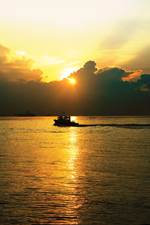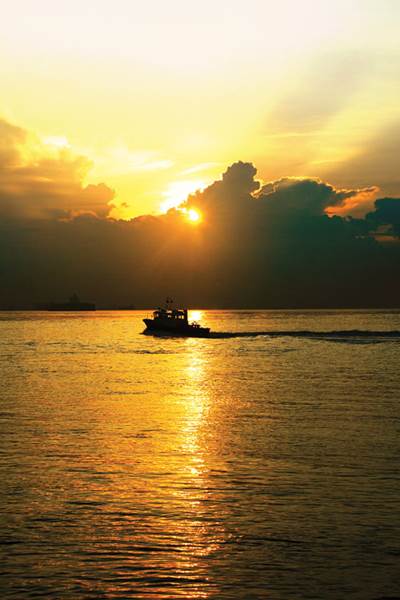Q&A: Chris Stanton
Small boatbuilders, among the most recession-stressed marine manufacturers, were the most vulnerable to demise during the economic downturn. CT asked Chris Stanton of American Sail Inc. (Charleston, S.C.), to describe the recession and its aftermath from his perspective.
Small boatbuilders, among the most recession-stressed marine manufacturers, were the most vulnerable to demise during the economic downturn. CT asked Chris Stanton, vice president of recession survivor American Sail Inc. (Charleston, S.C.), to describe the recession and its aftermath from his perspective as a sailboat builder (20 ft and under) with a staff of 10 employees.
Q: How did the recession affect your sales and operations? How did you adjust?
A: Like everyone else, [our] sales have been down, but I don’t believe to the extent that the power side of the industry has had to deal with. We got lean and watched every expenditure. We put off anything questionable, like updated computers when those we have are getting the job done. We did have to do some temporary layoffs but managed to get back to full staff this spring, and we are still surprisingly busy now, even on the backside of the season.
Q: What was/is the most challenging aspect of the recession for your business?
A: I’d say the most challenging has been adjusting our marketing efforts. Allocating marketing time (and dollars) gets tricky. Customers don’t make decisions quickly in this economic environment, so follow-up is critical. Those impulse buyers at the boat shows are few and far between, so you better do some good follow-up after the show. Our biggest competitor is not a new boat — it’s the used boat on the corner for $800 that is tough to beat. Put a new set of sails on a 30-year-old daysailer and it is still a good boat. Customers know that, too, and convincing them to spend $8,000 instead of $800 is tough. In a recession, this “used boat competition” just gets much worse as buyers are looking to spend less and there are a flood of used boats for sale in the marketplace.
Q: What did you learn about yourself or your business
because of the recession?
A: We have always enjoyed one of the best reputations for customer service. I can’t count how many calls we have had from our customers over the last year, expressing how happy they are that we are one of the survivors. Not because they needed something but simply because they appreciate how we treat them as customers and want us to stick around. These are the kinds of calls that make it a joy to come to work, even in the tough times, and help us recommit our efforts to building a boat we would enjoy and treat the customers as we want to be treated.
Q: How is 2010 shaping up for your business, and how is
2011 looking?
A: We will end the 2010 boat year a bit up from last year but still not to where we were before the boat market tanked. It’s a step in the right direction, but we know there is a ways to go. 2011 is a big question. There are talks of a double dip, and I just read of a 31 percent decline in boat sales for the month of July vs. last year (which was horrible). Honestly I don’t know what to expect for 2011. Unemployment is still very high and there has not been much of a turnaround in the economy. Even when it does turn, boat sales will be at the tail end of the recovery since they are luxury items. I think it is more likely 2012 or 2013 before we see any significant turnaround in the boat industry.
Read Next
Marine composites: A new dawn?
Boatbuilders fared worse than automakers during the recent recessionary storm. As the dark clouds dispel, there is some light on the horizon.
Read MoreAll-recycled, needle-punched nonwoven CFRP slashes carbon footprint of Formula 2 seat
Dallara and Tenowo collaborate to produce a race-ready Formula 2 seat using recycled carbon fiber, reducing CO2 emissions by 97.5% compared to virgin materials.
Read MoreDeveloping bonded composite repair for ships, offshore units
Bureau Veritas and industry partners issue guidelines and pave the way for certification via StrengthBond Offshore project.
Read More














.jpg;maxWidth=300;quality=90)






